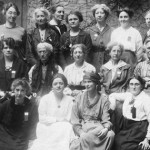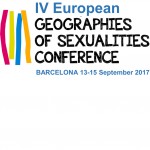International Network ‘Translating Feminism: Transfer, Transgression, Transformation (1945-1990)’; Maud Bracke, Penny Morris and Kristina Schulz
Venue: Universität Bern
Time: 23.-24.06.2017
Proposals due: 15.03.2017
The project brings together scholars from three continents wishing to pursue original, interdisciplinary research focused on the global reach of feminist writing and women’s movements. While the transformation of women’s social status is one of the most significant developments of the post-war period, little is known about the precise ways in which women’s rights campaigners across different national and cultural settings communicated with one another, read and translated each other’s texts, and locally recontextualised them. The first international workshop in Glasgow 2016 provided the opportunity to discuss historical findings and new theoretical approaches. These discussions will be pursued further at the second international workshop in Bern in June 2017.
More precisely, this workshop will be dedicated to the materiality of feminist texts and to the material culture of feminist literary activities, with a special focus on translation. Following Roger Chartier, the meaning that readers give to a text is never detached from the material conditions in which it is produced and diffused. Read more and source … (Web)

![Banner via Website [Zum Vollbild anklicken] _noslavery](https://salon21.univie.ac.at/wp-content/uploads/noslavery-150x150.jpg)

![via Website [Zum Vollbild anklicken] strategies-poster-11-x-17-002](https://salon21.univie.ac.at/wp-content/uploads/strategies-poster-11-x-17-002-150x150.jpg)
